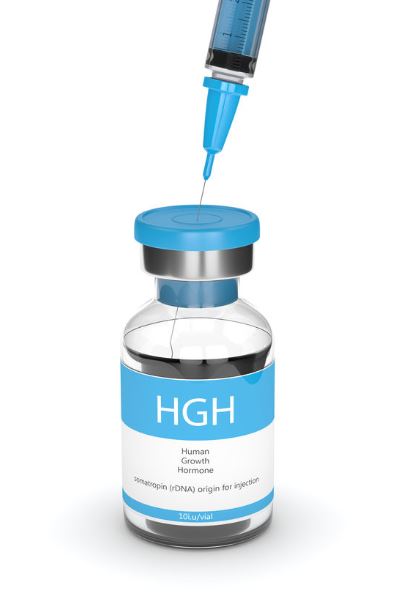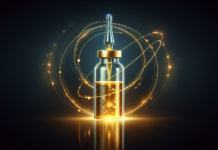Human growth hormone (HGH) is a vital hormone produced by the pituitary gland. It plays a crucial role in various bodily functions, including growth, metabolism, and cellular repair. As we age, the natural production of HGH declines, leading to potential health concerns. In recent years, HGH supplements have gained popularity as a means to enhance HGH levels and combat the effects of aging. However, understanding the benefits, risks, and controversies surrounding these supplements is essential for making informed decisions about their usage.

Understanding Human Growth Hormone (HGH)
HGH is a peptide hormone responsible for stimulating growth, cellular reproduction, and regeneration in humans. It plays a significant role in childhood growth and development, but its importance extends beyond that. HGH influences metabolism, muscle and bone health, organ function, and immune system response. With age, HGH levels decline, leading to a range of age-related symptoms and conditions.
HGH Supplements: What Are They?
HGH supplements are synthetic or natural substances that aim to increase HGH levels in the body. They come in various forms, including pills, injections, sprays, and powders. These supplements typically contain amino acids, vitamins, minerals, and other compounds that promote HGH release or mimic its effects. It is important to note that HGH supplements are not the same as synthetic HGH injections, which require a prescription and are used for medical purposes.
Benefits of HGH Supplements
Enhanced Muscle Growth and Strength: HGH supplements like Genf20 Plus have gained popularity among athletes and bodybuilders due to their potential to increase lean muscle mass and improve strength. Studies have shown that HGH supplementation, coupled with resistance training, can lead to significant gains in muscle mass.
Increased Energy Levels and Exercise Performance: HGH is known to enhance energy production and improve exercise capacity. HGH supplements may aid in increasing endurance, reducing fatigue, and accelerating post-workout recovery.
Potential Anti-Aging Effects and Improved Skin Quality: HGH is often associated with anti-aging effects due to its role in cell regeneration and collagen production. Some studies suggest that HGH supplements may help improve skin elasticity, reduce wrinkles, and promote a more youthful appearance.
Impact on Fat Metabolism and Weight Loss: HGH has been linked to improved fat metabolism, leading to increased fat loss and decreased body fat percentage. HGH supplements may aid in weight management efforts, particularly in individuals with age-related weight gain.
Potential Benefits for Bone Health and Fracture Prevention: HGH plays a crucial role in maintaining bone density and strength. Some studies suggest that HGH supplementation may help improve bone health, reduce the risk of fractures, and enhance fracture healing.
Risks and Considerations
Possible Side Effects and Risks: Like any supplement, HGH supplements carry potential risks and side effects. These may include joint pain, fluid retention, carpal tunnel syndrome, increased risk of diabetes, and abnormal growth of organs. It is important to use HGH supplements responsibly and under the guidance of a healthcare professional.
Dosage and Administration: Proper dosage and administration of HGH supplements are critical. Excessive or incorrect use can lead to imbalances and adverse effects. It is important to follow recommended dosages and consult a healthcare professional for personalized guidance.
Interactions with Medications and Medical Conditions: HGH supplements may interact with certain medications and medical conditions. Individuals with diabetes, cancer, heart disease, or hormone-sensitive conditions should exercise caution and consult with their healthcare provider before using HGH supplements.
Regulation and Quality Control: The supplement industry is not tightly regulated, and HGH supplements can vary in terms of quality and efficacy. It is crucial to choose reputable brands that prioritize quality control, adhere to manufacturing standards, and undergo third-party testing for purity and potency. Consulting healthcare professionals or trusted experts can help in selecting reliable HGH supplement products.
The Controversy Surrounding HGH Supplements
Doping and Performance-Enhancing Concerns in Sports: HGH supplements have garnered attention in the world of sports due to their potential performance-enhancing effects. Athletes seeking an unfair advantage may misuse HGH supplements to improve their athletic performance, leading to ethical concerns and violations of anti-doping regulations.
Ethical Considerations and Fairness in Competition: The use of HGH supplements raises questions about fairness in competitive sports. Athletes who rely on these supplements may have an edge over their competitors who do not use them. Ensuring a level playing field and maintaining the integrity of sports is a key consideration in the HGH supplement debate.
Medical Community’s Perspective on HGH Supplements: The medical community remains cautious about the use of HGH supplements for non-medical purposes. While HGH therapy may be prescribed for specific medical conditions, such as growth hormone deficiency, the use of supplements for general well-being or anti-aging purposes is a topic of ongoing debate. Further research is needed to fully understand the long-term effects and risks associated with HGH supplementation.
Alternatives and Natural Ways to Boost HGH Levels
Lifestyle Factors that Influence HGH Production: Several lifestyle factors can naturally stimulate the production of HGH in the body. Regular exercise, especially high-intensity interval training and resistance training, adequate sleep, stress management, and a balanced diet rich in protein, healthy fats, and micronutrients can all support optimal HGH levels.
Supplements and Nutrients that Support Natural HGH Production: Certain supplements and nutrients may support the body’s natural HGH production. These include amino acids like arginine, ornithine, and glutamine, as well as vitamins and minerals like vitamin D, zinc, and magnesium. However, it is important to note that the effectiveness of these supplements in boosting HGH levels is still being researched.
Other Therapies and Treatments: In addition to lifestyle factors and supplements, other therapies and treatments may help optimize HGH levels. These include hormone replacement therapies, peptide therapies, and alternative approaches such as acupuncture and herbal remedies. It is important to consult with healthcare professionals to determine the most appropriate options based on individual needs and health conditions.
Conclusion
HGH supplements like Growth Factor Plus have gained popularity for their potential benefits in muscle growth, anti-aging effects, weight management, and bone health. However, it is crucial to approach their usage with caution, considering the potential risks, responsible administration, and individual circumstances. Consulting healthcare professionals, following recommended dosages, and selecting reputable brands are vital steps for safe and informed use of HGH supplements.
Furthermore, understanding the controversies surrounding HGH supplements, particularly in the realm of sports and fair competition, helps foster discussions about ethical considerations and the need for stringent regulations. Exploring natural ways to support HGH production through lifestyle modifications, proper nutrition, and appropriate supplementation can be valuable alternatives to consider.
In the pursuit of optimal health and well-being, it is essential to strike a balance between informed decision-making, scientific research, and the guidance of healthcare professionals. Ultimately, each individual must weigh the potential benefits and risks associated with HGH supplements and make choices that align with their specific needs and goals.



